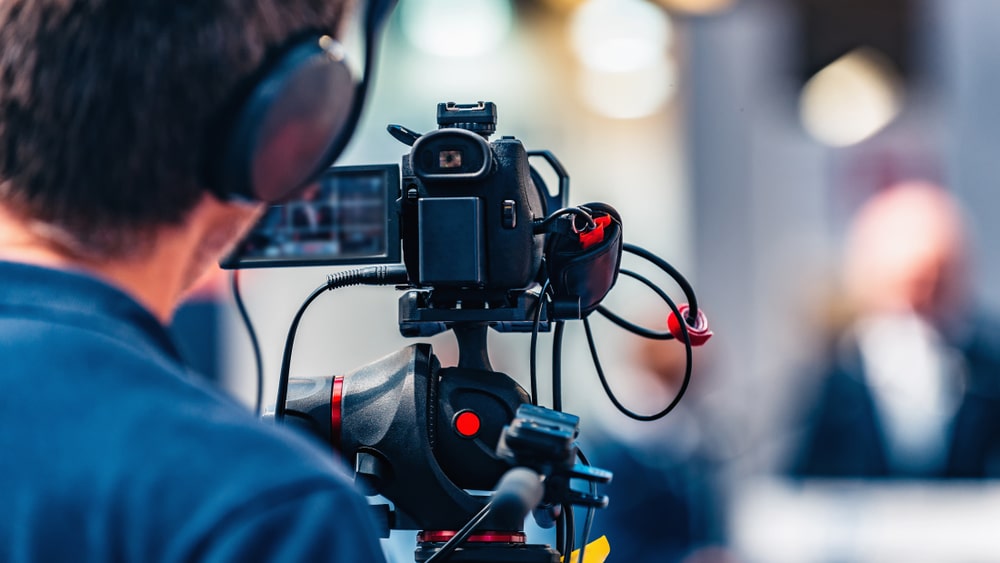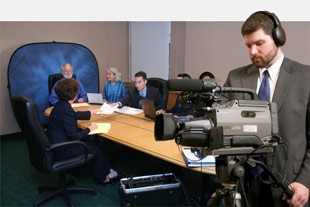The Essential Benefits of Legal Videography in Law Firm Operations
The Essential Benefits of Legal Videography in Law Firm Operations
Blog Article
The Importance of Legal Videography in Modern Legal Process
In contemporary legal settings, the integration of legal videography has ended up being significantly substantial, working as an essential device in the documentation and presentation of proof. This practice not only makes certain an accurate aesthetic account of testimonies however also captures important non-verbal cues that might affect juror assumptions. As the lawful landscape evolves with technical advancements, the implications of top quality videography extend past plain paperwork, raising essential inquiries about its effect on judicial results and the overall stability of the lawful process. What stays to be explored is just how these advancements may shape future legal techniques.
Definition of Legal Videography
Lawful videography refers to the specialized technique of recording sound and aesthetic material for use in lawful setups. This method incorporates different sorts of recordings, consisting of depositions, witness declarations, and test presentations, which serve to record key facets of legal procedures. The primary goal is to produce a precise and trustworthy aesthetic document that can be made use of in court or for pre-trial prep work.
Legal videographers are educated experts who utilize advanced recording devices and methods to make sure high-grade video and audio capture. They are skilled in the lawful requirements and needs regulating the admissibility of video clip proof, making their know-how very useful in the legal process.

Advantages in Legal Procedures
The consolidation of lawful videography right into modern legal proceedings offers countless advantages that enhance both the performance and effectiveness of the judicial procedure. One primary advantage is the exact and permanent documentation of court room proceedings, which can be important for appeals and record-keeping. Unlike traditional transcription techniques, video clip records non-verbal hints and the total context of testaments, supplying a richer, a lot more nuanced account of occasions.
In addition, legal videography can streamline the presentation of evidence (legal videography). By aesthetically showing facets of a situation, such as crash reconstructions or expert analyses, lawyers can convey complex info a lot more properly, making it much easier for courts and courts to understand crucial points. This can bring about even more informed decision-making and end results
Additionally, lawful videography promotes ease of access. Tape-recorded depositions can be reviewed from another location, allowing legal teams to prepare even more completely without the restraints of geographical limitations. This ease aids in case preparation and strategy growth.
Lastly, the expert quality of videography offers trustworthiness to the process, strengthening the seriousness and importance of the lawful process. legal videography. In recap, legal videography significantly contributes to a much more transparent, effective, and impactful judicial system


Enhancing Witness Testimonies
Witness statements play a crucial duty in legal proceedings, and using videography dramatically boosts their effect and effectiveness. By recording the subtleties of a witness's temperament, tone, and body language, legal videography gives a comprehensive understanding of the testament that composed transcripts alone can not convey. This aesthetic representation aids in maintaining the witness's original declarations, guaranteeing that jurors and lawyers can view the testament in its intended type.
Additionally, videography permits an extra appealing discussion of evidence, as jurors are frequently extra responsive to audio-visual materials compared to typical paperwork. The capability to observe a witness's emotional state improves the credibility of their statements, consequently increasing the convincing power of their testament. Furthermore, video recordings can be used for training and prep work, allowing attorneys and witnesses to examine and improve their presentations.
In situations where witnesses might be not available for trial, videography ensures that their statements can still be offered, protecting the integrity of their accounts. Generally, the assimilation of videography in legal proceedings substantially boosts the quality and reliability of witness statements, fostering an extra enlightened and fair judicial procedure.
Influence On Jury Comprehending
Recording witness testaments on video clip not just improves their delivery however likewise substantially affects court understanding of the case. The visual and acoustic aspects of video clip recordings supply jurors with an extra immersive experience, enabling them to regard subtleties in tone, body language, and psychological expressions that could be lost in written records. This multi-sensory interaction promotes a deeper connection with the statement, assisting jurors in realizing the complexities of the instance.
Additionally, legal videography can help clear up intricate details and make certain that essential factors are presented in a coherent page fashion. Jurors often appreciate the chance to revisit crucial statements during considerations, enhancing their understanding of the proof. The capability to observe a witness's demeanor can likewise affect their integrity evaluation, as jurors might create judgments based upon aesthetic hints that reverberate with their perceptions of reliability and dependability.
Additionally, using video clip can streamline the discussion of evidence, making you can check here it much more accessible and unforgettable for jurors. Overall, the calculated application of legal videography plays an essential role in boosting jury understanding, eventually contributing to a fairer and a lot more enlightened legal process.
Future Trends in Legal Videography
Significantly, lawyers are recognizing the transformative possibility of emerging technologies in legal videography. As the legal landscape advances, the assimilation of expert system (AI) and artificial intelligence is established to transform the means video evidence is caught, refined, and presented. AI formulas can analyze huge quantities of video footage to determine pertinent sections, boosting effectiveness and ensuring that essential information is not forgotten.
Furthermore, innovations in virtual fact (VR) and boosted reality (AR) are positioned to offer immersive experiences in court rooms. These modern technologies allow jurors to envision criminal offense scenes or comprehend intricate situations in a much more interesting way, possibly improving their comprehension and retention of proof.
The rise of cloud-based remedies also assists in the secure storage and sharing of video clip evidence, enabling smooth collaboration amongst lawful teams. basics legal videography. As remote hearings come to be more prevalent, high-grade lawful videography will certainly play an important function in making sure that remote testaments are recorded precisely and provided efficiently
Final Thought
In final thought, legal videography works as a vital tool in contemporary legal proceedings, enhancing the precision and quality of proof discussion. By capturing witness testaments in an aesthetic style, it assists in a deeper understanding for jurors and preserves critical statements for future recommendation. As modern technology remains to develop, the combination of top quality videography is expected to increase, further solidifying its function in advertising the stability and performance of the legal process.
Report this page